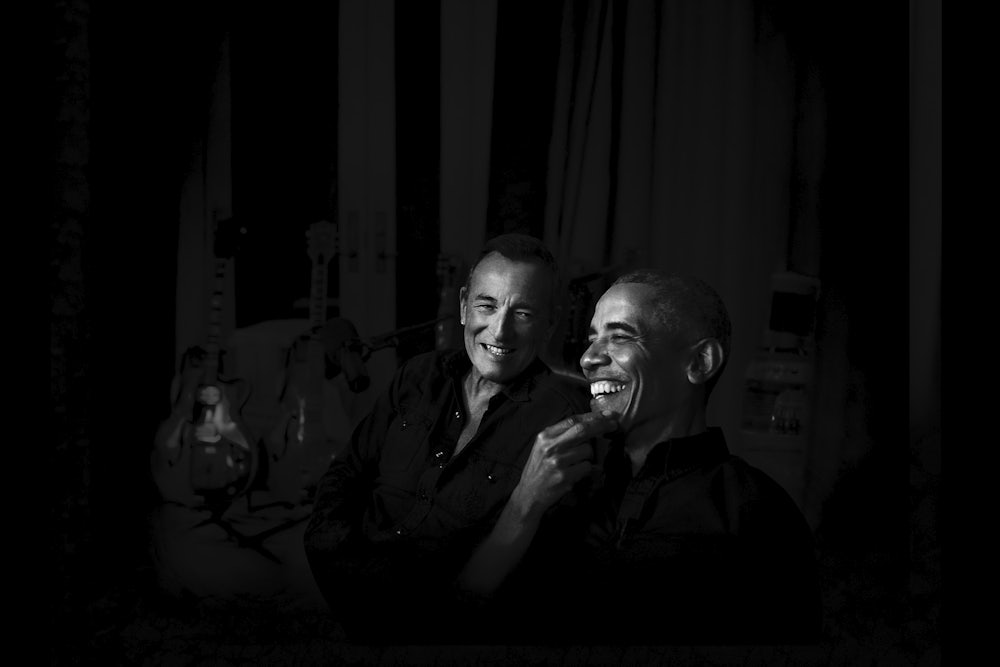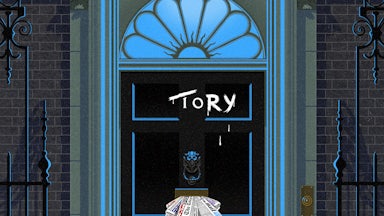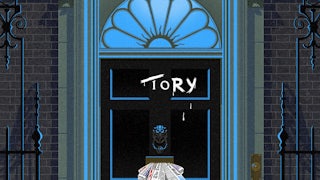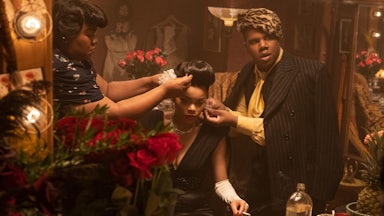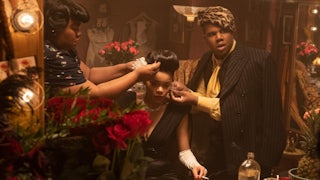In 2009, during Barack Obama’s tumultuous first year in the White House, the telecommunications giant Comcast bought NBC Universal, raising the alarm of antitrust activists. As a report released earlier this year by the American Economic Liberties Project, an anti-monopoly think tank in Washington, put it, the merger heralded an era when only corporate goliaths “would have sufficient bargaining leverage to produce and sell content, leading to the erosion of independent production houses and cable systems.” Obama himself seemed to acknowledge this danger five years later, when he directed the Federal Communications Commission to block Comcast’s attempted merger with Time Warner Cable. While that effort was successful, Comcast nonetheless ended the Obama presidency even more powerful than when it began. So did Spotify, the audio-streaming company that launched the month before Obama’s first presidential victory and that, over the next decade, would aggressively seek monopolistic dominance over the burgeoning podcast industry.
Last week, Obama launched a new podcast consisting of a series of conversations with his friend Bruce Springsteen, released exclusively through Spotify and sponsored by Comcast as well as Dollar Shave Club, the once-scrappy startup that was acquired by the global conglomerate Unilever for around $1 billion in the last year of Obama’s presidency. Both companies’ ads feature prominently (Comcast boasts of expanding broadband internet in low-income communities, while Dollar Shave offers advice to men debating whether to shave “where the sun don’t shine”). Considering Barack and Michelle Obama have a combined net worth in excess of $100 million, and Springsteen is worth several times that, it’s unclear why either man needs corporate sponsorship to release a podcast—titled, not very persuasively, Renegades. Then again, it’s precisely this level of comfort with corporate power that secured both men such immense fortunes in the first place.
Before I go any further with this review, I should acknowledge that I was an enthusiastic supporter of Obama when it counted, in 2008 and in 2012, and I remain a huge fan of Springsteen, who once recorded an uninterrupted sequence of six basically perfect albums, spanning from 1975’s Born to Run to 1987’s Tunnel of Love. I have read both of their recent memoirs—Springsteen’s Born to Run (2016) and Obama’s A Promised Land (2021)—cover to cover, and I feel like I know both of them a bit, insofar as anyone who hasn’t actually met either of them can. I didn’t go into this as a dedicated hater, in other words; while I was skeptical, I was willing to entertain the possibility that I might actually enjoy listening to Renegades.
Unfortunately, judging by its first two episodes, the podcast commits the unforgivable sin of being boring. This is not a charge I would level at Springsteen’s memoir, which is intimate and revelatory, or at Obama’s, which is frustrating but certainly a useful document and a solid work of prose. Here are two widely revered men who share a gift for telling stories and have many stories worth telling, and who seem to be good friends—which makes it a bit of a puzzle how they’ve managed to create such a nonessential media project together. So far, Renegades is less than the sum of its parts, and it leaves me wondering how they could have made it a more worthwhile exercise.
The premise itself feels somewhat in bad faith. Obama, who introduces the series, portrays himself and Springsteen as unlikely friends from very different backgrounds: What could a white rock star from Freehold, New Jersey, and a Black politician from Honolulu born more than a decade later have in common? The answers Obama and Springsteen would like us to focus on are, first of all, that both had difficult relationships with their fathers—Springsteen’s suffered from undiagnosed schizophrenia and had trouble holding a job, while Obama’s was almost entirely absent; both felt like outsiders growing up; both love their wives; and both share faith in America as an ideal, tempered by an acknowledgment that America often falls short. The last of these seems to be the overarching thesis of Renegades, and of both of their careers.
But while they’re both too classy to say so outright, both men are also charismatic, iconic international superstars. Both are exceptionally wealthy, though neither started out that way, and neither has been able to walk down the street for years without being approached by adoring fans. As a result, both face the ongoing challenge of speaking to and for the working class and the marginalized from a bubble of unimaginable privilege. This all may seem too obvious to be worth mentioning, but in any case, it goes unmentioned, even though it is almost certainly one reason Obama and Springsteen (and, apparently, their families) are able to bond.
I’m not suggesting I wish Renegades were more like Jerry Seinfeld’s Comedians in Cars Getting Coffee; popular culture has more than enough forums for rich celebrities to gaze into each other’s navels already, and both Obama and Springsteen are public-spirited men interested in having a public-spirited discussion. But insofar as the podcast is meant to capture their friendship, the conversations suffer frequently from being stilted and awkward—when they’re not reviewing biographical details that they presumably already covered in private when they first got to know each other, they’re nodding along to a “conversation about race” in which neither says anything likely to make the other, or any target listener, remotely uncomfortable. I believe these two men are actually friends, but I believe that in spite of this podcast, which does a mediocre job of demonstrating it.
A more natural conversation, and a more honest one, might have featured some sharp elbows thrown at political and artistic rivals, some off-color jokes, or some soul-baring anxiety about love and fate and mortality. At one point, Obama says that Michelle initially encouraged him to spend more time with Springsteen because the latter is a role model for how to be a good husband. Considering that Springsteen is on his second marriage, which started out as very public infidelity (detailed in his memoir) in the context of his first marriage, that probably led to some genuinely interesting conversations with the former president. But we are not privy to anything so personal, which suggests that Obama and Springsteen are presenting a more anodyne and airbrushed version of their actual friendship for public consumption.
Absent such details, the conversation about race that dominates the early episodes, and which comes in direct response to last summer’s mass protests against police violence, is itself marked by an unwillingness to talk about money and power in a rigorous and self-critical way. Racism is something both men have spent a lot of time thinking about—Springsteen’s recollections of the 1968 race riots in Freehold during his high school years, which inspired his 1984 song “My Hometown,” make for one of the show’s stronger moments, as do his personal memories of his late bandmate Clarence Clemons, the only Black member of the E Street Band for most of its existence—but both seem to understand it primarily in terms of hatred and fear of the other, as a painful and shameful “division” to be transcended through dialogue and understanding. That’s true as far as it goes, but racism is also a system of material plunder.
Obama knows this—he has read, and argued with, and at one point cites, Ta-Nehisi Coates, the author of the widely read Atlantic cover story “The Case for Reparations”—and in perhaps the most telling part of the second episode, he admits frankly that he believes African Americans are owed reparations in a moral sense but that he regards such a program as politically impossible. This is a sober judgment but also an unsatisfactory one, and one he doesn’t follow by trying to argue, for instance, that ostensibly color-blind redistributive policies would (or at least could) systematically benefit the disproportionately Black poor. Rather, he seems to accept that some injustices can never be addressed. But this acceptance does not lead him, or Springsteen, into the fundamental pessimism that Coates’s best work is rooted in.
In his memoir, Springsteen frankly acknowledges his own battles with depression—another rich topic that Renegades has yet to touch on—and as a fellow depressive, I’ve recognized that struggle in Springsteen’s own best work. “I’m just tired and bored with myself,” he sings in his highest-charting single, “Dancing in the Dark.” “I’ll be on that hill, ’cause I can’t stop!” proclaims the protagonist of 1978’s “Darkness on the Edge of Town,” who is willing to destroy his marriage to feed his addiction to drag racing. “Is a dream a lie if it don’t come true, or is it something worse?” wonders the miserable accidental father in the title track on 1980’s The River. At the end of his relentlessly bleak 1982 album Nebraska, Springsteen meditates on a series of hard-luck individuals who have found “some reason to believe” that, in each case, is wholly unjustified by the realities he coldly details.
More recently, including in his conversations with Obama, Springsteen has described his oeuvre as “measuring the distance between the American dream and the American reality,” and while that’s pithy, it also seems like the reflection of a 71-year-old hundred-millionaire with a happy family who has spent a long time appreciating his own blessings. The younger Springsteen, who started out with nothing and didn’t become a true superstar until 1984’s Born in the USA, seemed capable of inhabiting “the American reality” in all its unvarnished tragedy, untempered by bromides or false hopes. The younger Obama was also a lonely cynic who, by his own account, dabbled in radicalism and drugs and the counterculture before he threw himself into conventional academic success. Both men are now old enough and comfortable enough to reflect on their youthful selves with a romanticism detached in so many ways from the actual stakes they once perceived. Springsteen, who remains a gifted artist and performer, can still channel those raw emotions on stage, even if in conversation he no longer has it in him to be angry. But it’s not clear whether Obama retains any of the magic that once surrounded him, when he offered a generation a brief, and ultimately dashed, reason to believe.
